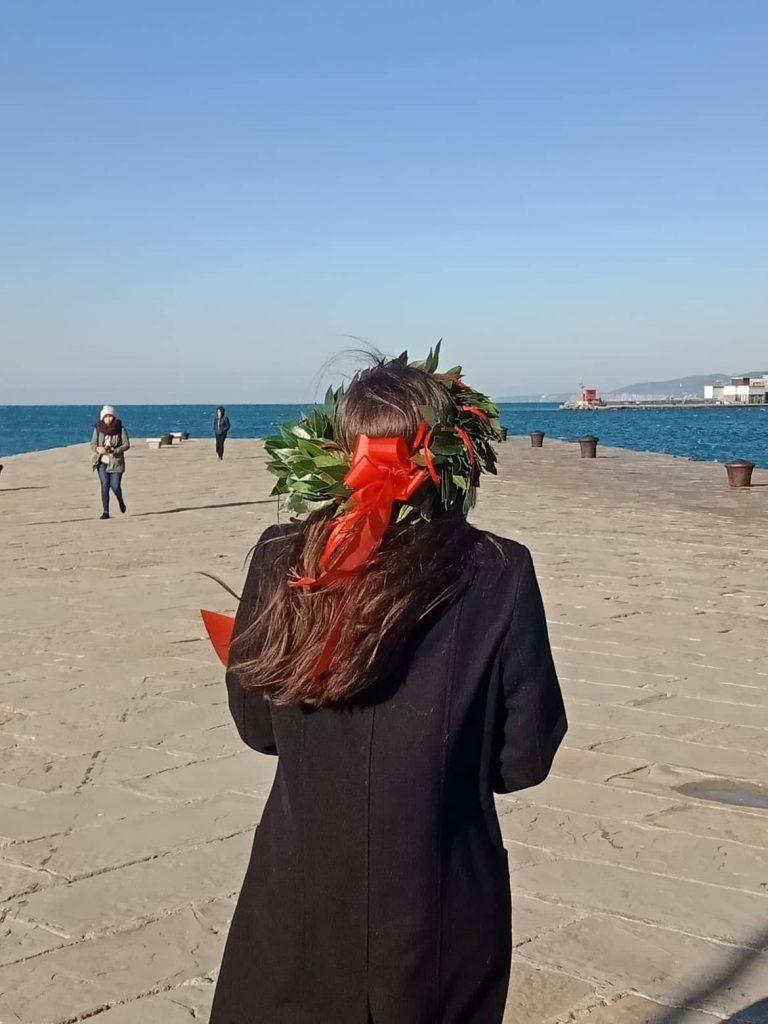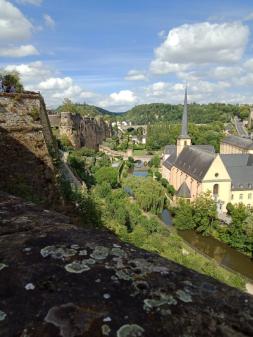
2020 is probably not the best year to graduate and start looking for a job. Back in December 2019, when I graduated from the University of Trieste, I was already worried about the scarcity of job prospects for young people, especially with a background in humanities. Although the pandemic certainly worsened the uncertainty across Europe, my experience has been a positive one so far and I hope it can be encouraging to those finishing off their studies in translation and struggling to find their way in these ever-changing circumstances.
I completed my university education in Trieste obtaining a Bachelor’s Degree in Applied Interlinguistic Communication and then a Master in Specialised Translation and Conference Interpreting. In these years, I gained specific skills in translation across different sectors, alongside a strong knowledge of linguistics, focussing on Italian (my mother tongue) and my three working languages: English, German and French. The way translation classes were structured gave me the opportunity to work from the very beginning on texts resembling those encountered in a work setting. Moreover, the regular feedback and group work helped me improve at practical projects, after studying the theoretical aspects.
During my final year I had the chance to take part in the Double Degree Programme with Monash University in Melbourne, Australia. There, I was able to enhance different skillsets, in particular my ability to work in extremely multicultural settings. Melbourne’s diversity strongly contributes to shape the linguistic services available to the population and to ethnical minorities, who nowadays can benefit from translators and interpreters across almost all public services. The offer of universities cannot but reflect this reality with several courses in community interpreting (while in Trieste the focus is rather on conference interpreting) in healthcare as well as in the legal sector, with internships and job offers to match these training paths.
Although in its very own way, Trieste also is a crossroads of cultures, maybe even the most multicultural city in Italy. Melbourne and Trieste represented for me the ideal places to learn how to build bridges among people and communities, as I had the chance to compare two different systems and get the best out of each one.
After making my way back to Trieste to graduate, I aspired to keep improving my skills in translation in a European context. So, I applied for the Blue Book traineeship of the European Commission which, once selected, gave me the opportunity to work at the Luxembourg-based Italian Unit of the Directorate-General for Translation.
The Blue Book traineeship, which I completed in July, was a highly formative experience which enriched my education and allowed me to put to the test the skills I had gained in Trieste. I learnt how to approach different text types, research efficiently, and solve translation problems justifying my choices. It also reinforced my language and digital skills, necessary to be a translator in the 21st century. During the past months I have grown significantly as a professional, being given the responsibility to handle translation projects, learning constantly through the feedback of colleagues and developing a detail-oriented approach, as well as peeking behind the curtain of the Directorate-General for Translation of the European Commission. Even though it was only for 5 months, taking part in the biggest translation service on earth fuelled my desire to keep breaking down language barriers and to contribute to the European project – which, thanks to translators and language service providers, speaks all of the 24 official UE languages.
But let’s not forget the pandemic going on…
The outbreak of COVID-19 inevitably affected my traineeship at the Commission. Due to the pandemic, I could only work at the office for the first two weeks; after that, teleworking became the norm. After getting to know a few colleagues and receiving key instructions for my tasks, I worked from my rented bedroom in Luxembourg for four months and a half, in what turned to be an unprecedented, stressful, challenging but uplifting experience! Moving to a new country and working from home with a pandemic going on: certainly not how I thought my EU traineeship would unfold.
As absurd as it may seem, there was also a positive consequence to my traineeship. As a matter of fact, I had the opportunity to witness from the inside the Commission’s response and, above all, how the Directorate-General for Translation and my Unit adjusted to the crisis. The texts that were being translated gradually shifted in topic dealing more and more with the pandemic, COVID-19, the economic, social, and employment-related consequences, as well as the immediate needs for digitalization. In order to write about all this, new words were being used (for example, the name of the illness itself); the challenge was translating and using those in a consistent way in the Commission as well as in the other EU institutions. Observing this process has been extremely interesting and allowed me to better understand the workflow within the DG, also focusing on more general issues related to the UE, like the green and digital transitions.
To give any sort of professional advice is now extremely complex for obvious reasons. However, I am confident my generation will succeed in rising to the challenges of the healthcare crisis, also thanks to the EU, and do all it can to keep on obtaining quality education and new professional experience across Europe. During a global crisis like this one, it is crucial to highlight the role of the Union and of the cooperation among professionals responsible for making information available on a large scale in the respective target language. Likewise, quality education to provide language services is also crucial, just like the one offered at the prestigious University of Trieste and all EMT universities. They allow us to stay united and face even the most complex and unprecedented challenges, like the one we are living right now.
Details
- Publication date
- 17 August 2020
- Language
- Dutch
- English
- Finnish
- French
- Italian
- EMT Category
- Professional experience/employability

